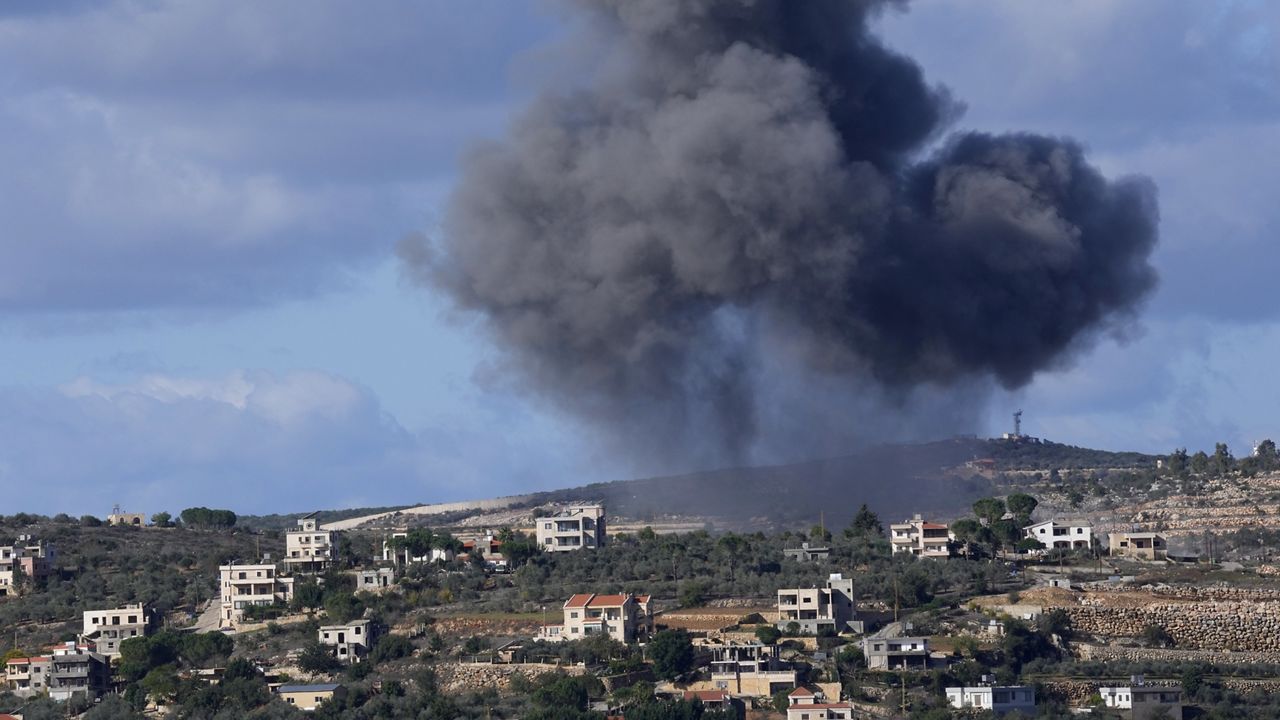With wars raging in Europe and the Middle East, the U.S. on Tuesday warned about the “increasing military cooperation” between Russia and Iran, including the possibility Tehran could provide Moscow with short-range ballistic missiles and the Russian mercenary organization Wagner group could provide air defense capability to Hezbollah or Tehran.
National Security Council Coordinator for Strategic Communications John Kirby told reporters on Tuesday that Iran showcased ballistic missiles to Russian Defense Minister Sergei Shoigu when he visited in September.
“We are therefore concerned that Iran is considering providing Russia with ballistic missiles now for use in Ukraine,” Kirby said. “In return for that support, Russia has been offering Tehran unprecedented defense cooperation, including on missiles, electronics and air defense.”
“Our information further indicates that Wagner, at the direction of the Russian government, was preparing to provide an air defense capability to either Hezbollah or Iran,” he later added, saying the U.S. was going to “closely monitor” it.
For months, the Biden administration has publicized intelligence showing Iran’s role in assisting Russia in its now nearly two-year-old invasion of Ukraine, warning of the impacts of such a cooperation.
“Iran has been providing Russia with significant numbers of UAVs, guided aerial bombs and artillery ammunition Russia has been using to attack Ukraine and kill innocent civilians,” Kirby said Tuesday, characterizing the potential of Iran providing ballistic missiles as Tehran taking it a “step further.”
But Tuesday’s announcement that Wagner – the group that mounted a brief uprising against the Kremlin this past summer – was preparing to provide air defense capabilities to Hezbollah or Iran could have an impact in the Middle East amid the Israel-Hamas war.
“This burgeoning defense relationship is not good for the people of Ukraine, and frankly, it's not good for the Middle East region,” Kirby said.
Hamas as well as Hezbollah – a Lebanon-based militant group – have both long been backed by Iran. Since the onset of the war, following Hamas’ Oct. 7 attack on Israel, the Biden administration has rushed to keep the conflict from spreading. Officials have placed focus on seeking to ensure Hezbollah does not open a second front against Israel in the north.
A White House advisor, Amos Hochstein, is in Tel Aviv this week following a recent meeting with Lebanese officials to talk about “the risks of a second front,” Kirby said in Monday’s White House press briefing.
“We're certainly prepared to use our counterterrorism sanctions authorities against Russian individuals or entities that might make these destabilizing transfers,” Kirby added Tuesday.
On Monday, the U.S. announced a $100 million aid package for Ukraine as it prepares its war efforts for the upcoming winter.
White House officials have warned the United States’ ability to continue providing assistance to Ukraine is dwindling with the fate of its request to Congress for more funds hanging in the balance.
The Biden administration requested about $24 billion in additional aid to Ukraine in August. Those funds were left out of the short-term funding deal Congress passed in September.
Since then, the president has put additional aid to Ukraine in a wide-reaching package that also asks Congress for aid to Israel as well as funds for the Indo-Pacific and the U.S.-Mexico border.
However, money for Ukraine has become a sticking point as a portion of House Republicans push back on additional aid to the country and Senate Republicans request border policy changes be included in the package.



